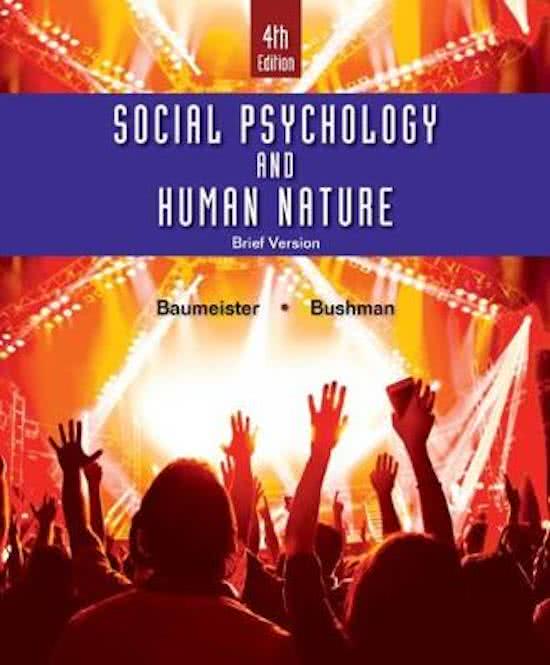Summary
Summary Chapter 5 - Social Cognition
- Course
- Institution
- Book
Summary of chapter 5 (Social Cognition) of Social psychology and human nature by Baumeister and Bushman. The order of the book is followed, and the summary is based on the key words of the book. There is a table of contents, which may prove useful when searching for certain topics in the summary. T...
[Show more]




